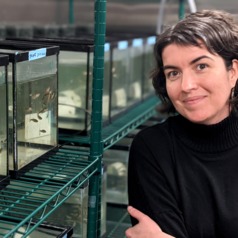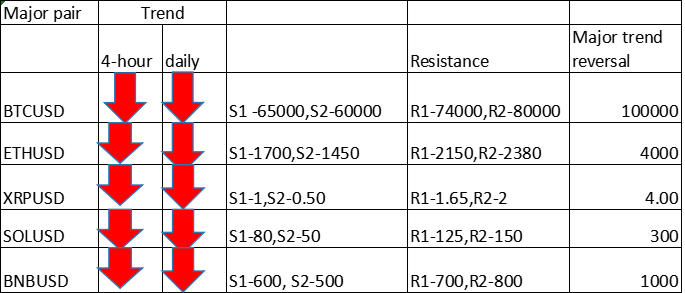
Valérie Langlois
Professor/Professeure titulaire, Institut national de la recherche scientifique (INRS)
Professor Langlois is particularly interested in the harmful effects on vertebrates of chemicals present in aquatic environments. These substances can potentially affect all stages of cellular regulation in aquatic vertebrates, from hormone synthesis to target cell responses, and consequently they can alter the metabolism, development, and reproduction of vertebrates.
The main theme of her research program is the identification of physiological responses and regulatory mechanisms in vertebrates exposed to environmental contaminants. For more than 10 years, she has been working with academic and government partners to determine the harmful effects of these contaminants on vertebrates. Her main research axes are:
Axis 1: Metabolism of polycyclic aromatic hydrocarbons in aquatic species
Axis 2: Emerging pollutants and their impact on the development of aquatic species
Axis 3: Endocrine disruptors in aquatic species
FRANÇAIS
La professeure Langlois est particulièrement intéressée par les effets nocifs sur les vertébrés des produits chimiques présents dans les environnements aquatiques. Ces substances peuvent potentiellement agir sur toutes les étapes de la régulation cellulaire des vertébrés aquatiques, depuis la synthèse des hormones jusqu’à la réponse des cellules cibles, et conséquemment, peuvent altérer le métabolisme, le développement et la reproduction des vertébrés.
Le thème principal de son programme de recherche est l’identification des réponses physiologiques et des mécanismes de régulation chez les vertébrés en présence de contaminants environnementaux. Depuis plus de 10 ans, elle travaille de concert avec plusieurs partenaires universitaires et gouvernementaux pour déterminer les effets néfastes de ces contaminants chez les vertébrés.
Présentement, ses principaux axes de recherche sont :
Axe 1 : Métabolisme des hydrocarbures aromatiques polycycliques chez les espèces aquatiques
Axe 2 : Polluants émergents et leur incidence sur le développement des espèces aquatiques
Axe 3 : Perturbateurs endocriniens chez les espèces aquatiques

Cancer drug pollution is a growing global concern
May 18, 2024 11:55 am UTC| Insights & Views Business
As incidence of cancer increases globally, the use of cancer drugs is also growing at a rate of approximately 10 per cent per year in developed countries. Pharmaceuticals significantly contribute to the improvement of...
Striving for transparency: Why Canada’s pesticide regulations need an overhaul
Nov 29, 2023 06:07 am UTC| Law
In 2021, Health Canada announced a freeze on changing maximum residue limits (MRLs) the maximum allowable pesticide residues acceptable under Canadian law. This decision followed substantial public outcry following...

Oct 16, 2023 09:10 am UTC| Nature
In 1981, scientists discovered that female fish exposed to high temperatures developed testes instead of ovaries. Since then, over 1,100 studies on different animal species, including 400 on freshwater fish, have found...
- Market Data













































